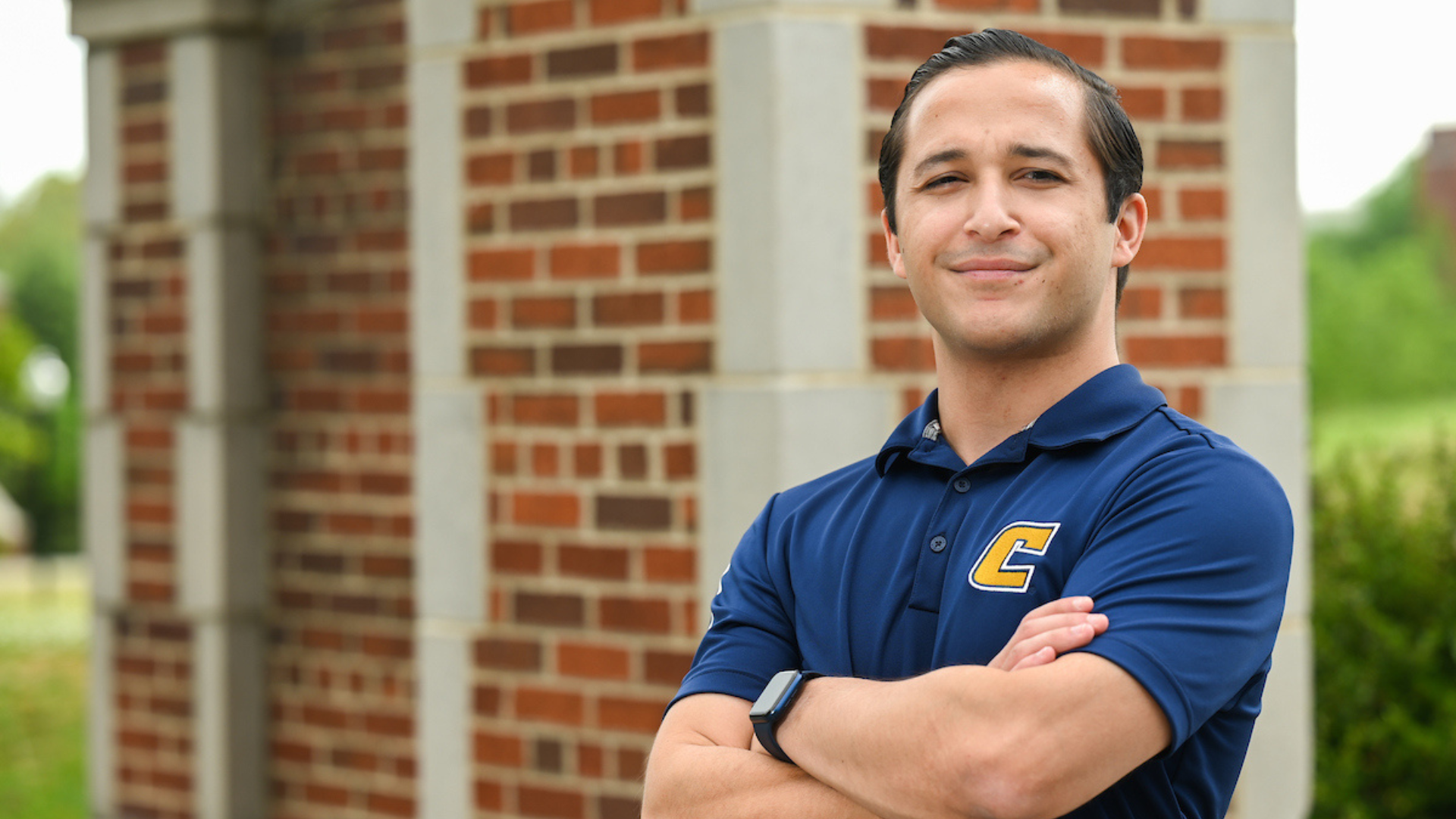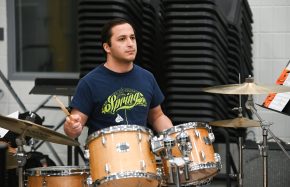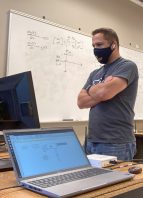
UTC Ph. D. student develops code for higher audio quality
Joshua Tyler grew up in Chattanooga and has always been a music lover.
While most young boys gravitate toward playing games on the computer, Joshua H. Tyler, a Ph.D. Student at the University of Tennessee at Chattanooga (UTC) used to play with the inside of computers. He would take them apart and try to reassemble them component by component.

In the early days, his dad led him through the computer assembly; but by the time Tyler reached middle school, his fascination with engineering took on a life of its own.
“I fell in love with music and the mixing process with different bands,” Tyler said.
He began assembling covers of well-known songs. He would play the drums, guitar, bass, and keyboard, and then would edit them all on a timeline to create a seamless track.
“I tried to copy it as close as possible to understand that whole mixing process. There was a lot to learn about how it all came together. You have to be very aware of what is fundamentally happening when mixing multiple instrument tracks into a single, coherent master track. Different instruments react to each other uniquely, you have to know how to maintain clarity and sonic quality while remaining faithful to each instrument’s organic sound Tyler said.
Several years and (almost) three degrees later from UTC, Tyler has developed a new way of sharing, and sampling music to make it sound better.
“I was very diligent in learning about Electrical Engineering and how it related to audio. Throughout my studies, I spent a lot of time on developing and implementing advanced waveform processing techniques. How do you detect a quality waveform, and how do you encourage that behavior without having to be hands-on with it?” he said.
Currently, Tyler is pursuing a Ph.D. in Computational Engineering. He hopes to finish in 2024. His audio development concept came from a simple idea and a little “back of the napkin” math. He attempted to solve a common problem in the audio industry: how can one share compressed waveform files and still maintain the quality of the sound?
 “The math worked on paper, so I started coding it, ran the experiment, and it worked. I was able to transition a track from a lower resolution (44.1kHz) up to a higher resolution (192kHz) while recovering a lot of the behavior thought to be lost to compression. No other interpolation technique was able to do what this new algorithm could,” Tyler said. “Then, I did a bit more experimenting and set it to go from a higher resolution to a lower one. The results showed that 98% of the master quality track could be preserved when compressing to C.D. data rates. The best case scenario in the industry today is only up to 80%.”
“The math worked on paper, so I started coding it, ran the experiment, and it worked. I was able to transition a track from a lower resolution (44.1kHz) up to a higher resolution (192kHz) while recovering a lot of the behavior thought to be lost to compression. No other interpolation technique was able to do what this new algorithm could,” Tyler said. “Then, I did a bit more experimenting and set it to go from a higher resolution to a lower one. The results showed that 98% of the master quality track could be preserved when compressing to C.D. data rates. The best case scenario in the industry today is only up to 80%.”
While the change may not be significantly obvious to a normal music listener, folks in the music production industry are quick to recognize the changes.
Tyler compared it to Apple’s Pro Motion on their pro iPhone displays. The pro phone has twice the screen refresh rate of non-pro phones, allowing for a smoother experience. A regular consumer may not recognize a large difference in smoothness when upgrading to the new technology, but the difference is undeniable when switching back to a display that doesn’t have Pro Motion”.
“I have always bet on myself to be able to create a good solution,” Tyler said. “Now that I have, I don’t want it to sit in a lab. I want it to get out in some way, shape or form into the hands of people who will use it.”
So far, Tyler has received some seed funding from the Clarence E. Harris Chair of Excellence in Entrepreneurship at UTC. He has also a maturation grant from the UT Research Foundation.
Learn more about Tyler’s work in audio here.
Like what you've read?
Forward to a friend!

